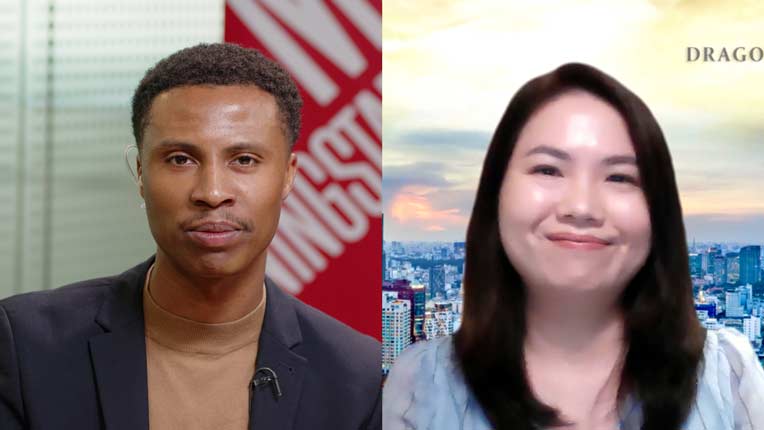It is as important as ever for long-term investors to have stock market exposure and to pick equity funds wisely. Morningstar data covers more than 17,000 funds and so the ability to figure out quickly which ones are worth detailed examination is crucial. Morningstar Fund Research, available to Premium subscribers, provides our analysts' in-depth qualitative assessment of 500 of the most popularly-held funds. But first, to help you narrow your focus, let's go through our 10-minute test for funds.
A caveat before we start: Many of the rules listed have exceptions and this is by no means an exhaustive list. However, if you apply these shortcuts, you'll significantly increase your chances of eliminating the duds.
Examine What the Fund Owns
You should have an idea of what you want your asset allocation to be--how much money you want in equities and bonds--before you start looking at funds. If you're looking at an equity fund, ask whether it owns lots of big, recognisable companies, which can make it suitable as a core holding. Or is it a small-cap fund that owns businesses that you haven't yet heard of, making it a good candidate for a supporting player in a portfolio? Is the manager impressed with earnings growth, or is he or she more value-oriented, trying to buy stable earnings or assets at a deeply discounted price? If it's a bond fund, does it hold longer-term bonds whose prices may bounce around as interest rates move, or is a shorter-term fund that will remain steadier but typically pay you less interest? Use the Morningstar Style Box for stock and bond funds to understand what a particular fund does.
Avoid High Expenses
Funds are one of the few areas of life in which paying more rarely gets you a better product. Fees cut into performance in a big way over the long term. For example, say you invested £4,000 a year for 30 years in each of two funds, one charging 1% a year and the other charging 2%. Assuming you earned an identical pre-expense return of 9% in both funds, at the end of the period you'd have accumulated £453,000 in the cheap fund and just £378,000 in the more expensive one. I would generally avoid any equity fund charging much more than 1.75% and any bond fund with an expense ratio above 1.25%. Note that these are generalised figures--expense ratios vary between categories--for example, as of March 2011, the median expense ratio for funds in the Europe Bond category was 0.97%, while the median for Global High Yield Bond funds was 1.43%, according to Morningstar data. Further, you may have to pay extra for more-specialised fund types, but there's rarely a good reason to pay much more than 2.50% for any type of fund, no matter how exotic.
Look for Experienced Management
Another factor to consider is manager tenure. A manager who's been through a bear market or, better still, a couple of the market's routine ups and downs is more likely to stick to his or her style when the going gets tough instead of trying to time what's hot. We think sticking to a style is a strong prerequisite for long-term success in money management. Look for at least five years of experience. If a manager hasn't been running a fund that long, try to see if he or she has managed other funds successfully.
Avoid the Fast Traders
Although there are a handful of managers who have earned their keep by using fast-trading strategies, you can live a long and happy life without having such a fund in your portfolio. That's because quick trading doesn't exhibit the business approach to investing that we favour, whereby one tries to purchase a piece of the future profits of a business at a cheap or reasonable price. Quick traders also lose a large chunk of gains to the tax collector. Moreover, the commissions for all those trades cost shareholders money and aren't reflected in the expense ratio. If you're looking to winnow down the fund universe to a more manageable group, look for turnover ratios of 50% or less on equity funds, which implies that the fund is holding a stock for two years, on average.
Look at Long-Term Performance
Performance is usually the first thing that captures investors' attention, but it makes them forget about all the other important things that often result in or are the precursors to good performance. Moreover, investors often imbue short-term performance with too much meaning. Our advice regarding judging a fund's performance is that longer time periods provide the most insight into how a fund is apt to behave in the future. Five years should be the minimum, and 10 years is preferable. Keep in mind the dates of manager changes so that you attribute the correct performance to the manager who is running the fund now. The Morningstar Star Rating for funds is based on longer-term performance (when a fund has it), adjusted for volatility.
Beyond the 10 Minutes
Read Morningstar's fund analyses after you've completed the 10-minute test. My fellow fund analysts and I try to be sensitive to a particular fund's quirks, indicating when you should overlook things like fees (rarely) or recent performance (less rarely). Our analyses are also sensitive to what could go wrong with a fund--or at least what could put it in a slump--and conclude as firmly as possible whether we think a fund is a worthwhile investment or not.
Further Reading: Five Factors for Successful Fund Investing.























